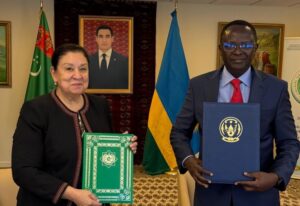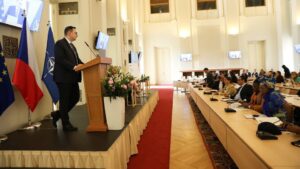Pope trip to Africa spotlights conflict, and church’s future

Vatican City, The Gulf Observer: Pope Francis is opening a six-day visit to Congo and South Sudan on Tuesday, aiming to bring a message of peace to two countries driven by poverty, conflict and what Francis has called a lingering “colonialist mentality” that still considers Africa ripe for exploitation.
Aid groups are hoping Francis’ trip will shine a spotlight on two of the world’s forgotten conflicts and rekindle international attention on some of Africa’s worst humanitarian crises, amid donor fatigue and new aid priorities in Ukraine.
But Francis’ trip will also bring him face-to-face with the future of the Catholic Church: Africa is one of the only places in the world where the Catholic flock is growing, in terms of practicing faithful as well as fresh vocations to the priesthood and religious life.
That makes his trip, his fifth to the African continent in his 10-year pontificate, all the more important as Francis seeks to make his mark on reshaping the church as a “field hospital for wounded souls” where all are welcome and poor people have a special pride of place.
“Yes, Africa is in turmoil and is also suffering from the invasion of exploiters,” Francis told The Associated Press in an interview last week. But he said the church can also learn from the continent and its people.
“The visit will bring hope to the people,” Impagliazzo said in an interview in Rome. “And I believe the visit will strengthen the churches — the Anglican Church, the Catholic Church, the local church — that are playing a critical role in bringing about peace and dialogue in South Sudan.”
One area of particular concern remains the widespread availability of firearms among the civilian population, which has led to continued fighting in areas as cattle herders seek more land or faction leaders seek to gain more territory, he said.
The Small Arms Survey estimated in 2017 that there were some 1.2 million firearms in the possession of South Sudanese civilians, or 1 for every 10 people. The estimate was believed low and pales in comparison to the number of per capita firearms in Europe or the U.S., but remains an outstanding issue that “will not go ahead until we have the possibility to have a unified army,” Impagliazzo said.
Francis has long denounced the weapons industry, calling traffickers “merchants of death.” In the AP interview, he repeated his condemnation.
“The world is obsessed with having weapons,” Francis said. “Instead of making the effort to help us live, we make the effort to help us kill.”


